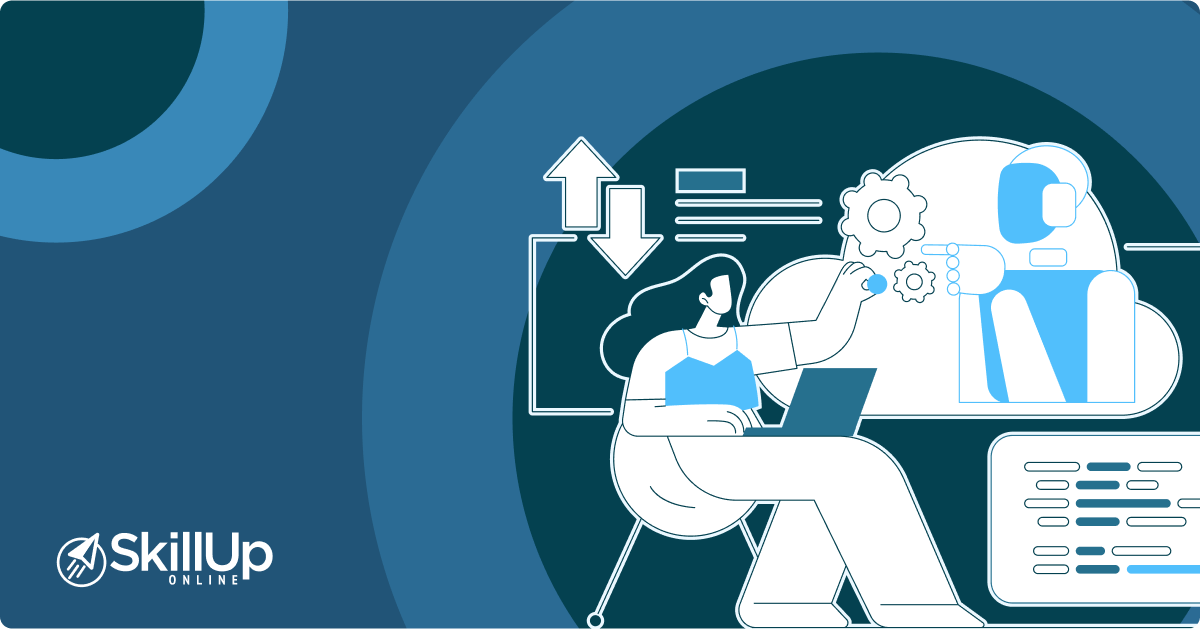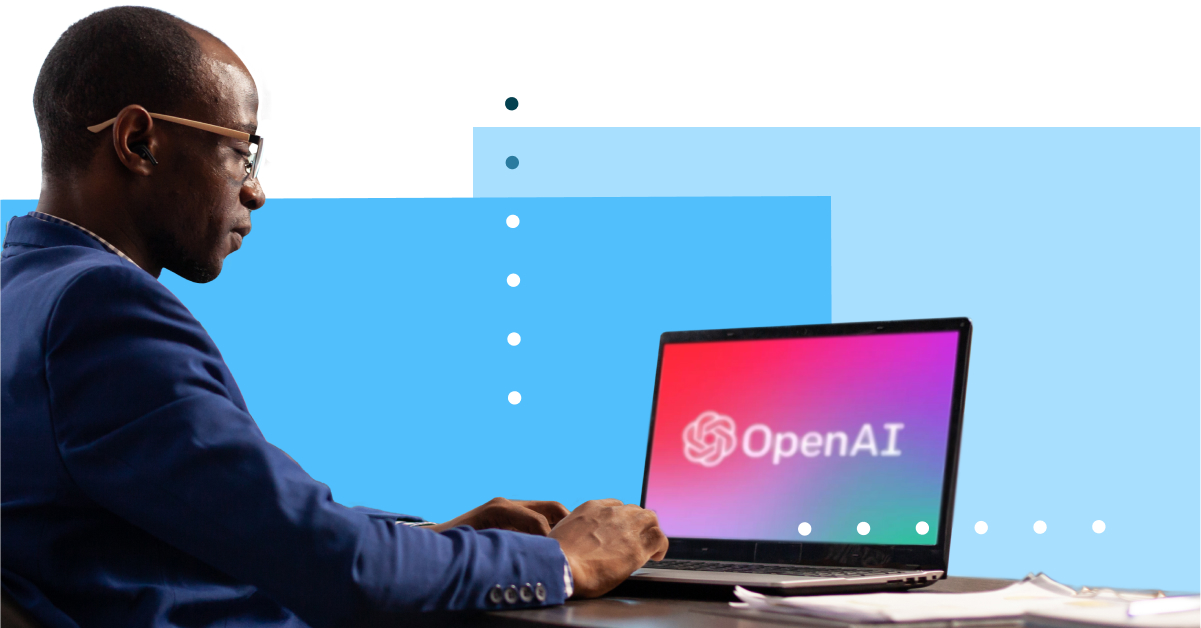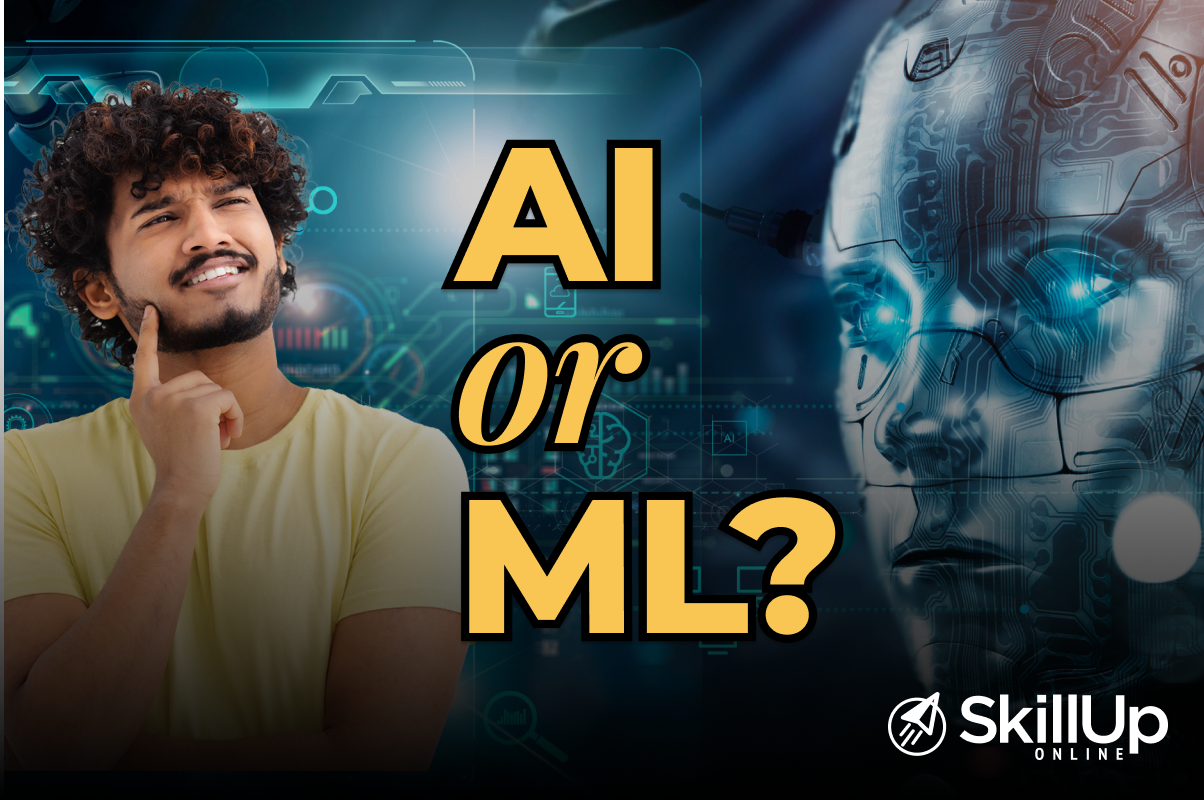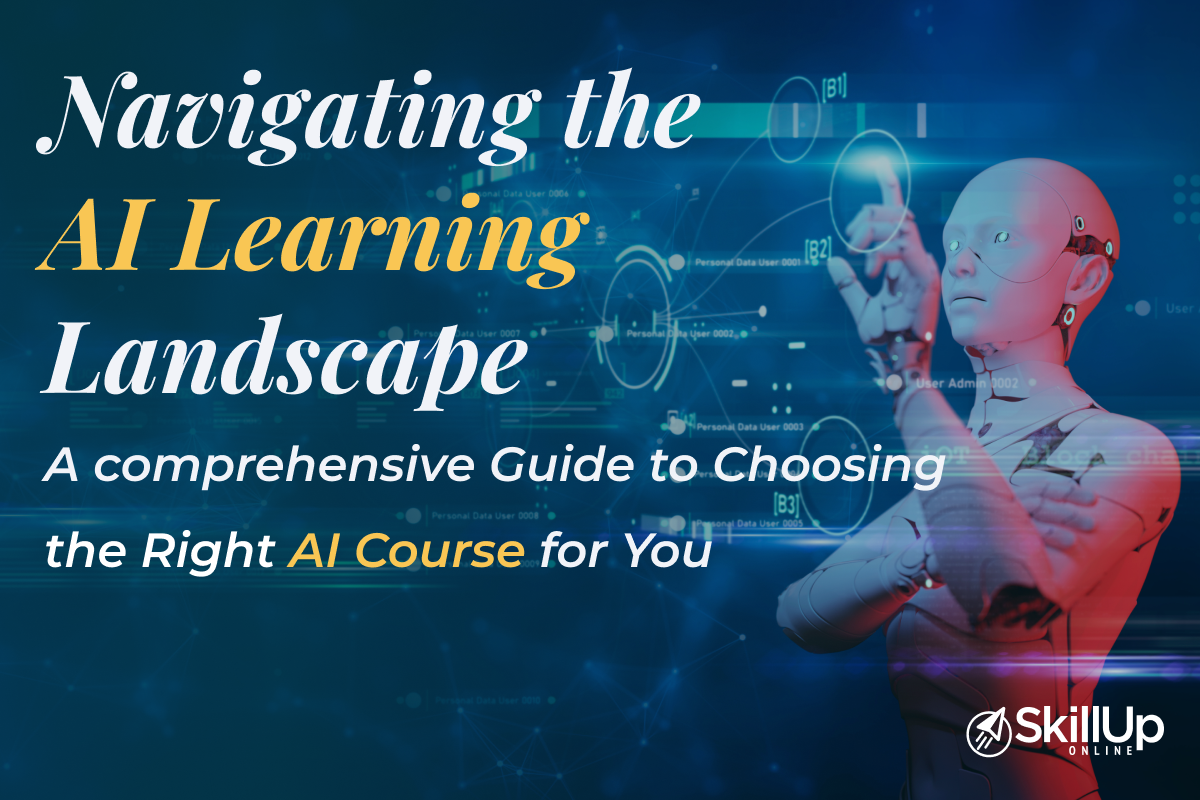In an age where technology evolves at an unprecedented pace, mastering artificial intelligence (AI) concepts has become more than just a professional advantage. AI has now become an integral part of our lives, influencing everything from the way we shop online to the healthcare decisions we make.
With this growing adoption for AI, the demand for AI professionals is skyrocketing. But if you want to start working in the field, here comes the question; are certifications all that you need? The answer is a bit more than just yes or no.
While certifications are crucial, they are not the first step for beginners. Diving headfirst into an AI certification without a firm grasp of the fundamentals can leave you in a sea of jargon and complex algorithms. So, to make an impact in the ever-evolving AI industry and to truly understand what powers AI systems, it is important to master the AI concepts first.
Whether you’re a working professional or a learner based in the U.S. contemplating a transition into the exciting world of AI, this article will help you understand how to gen up on AI concepts and give you an idea of the important areas you need to work upon.
Why Pre-Certification Learning is Crucial
The AI field is intricate, and the learning curve can be steep. Aspiring professionals often underestimate the depth of knowledge required, only to find themselves overwhelmed during certification.
Pre-certification learning acts like a roadmap, guiding you through complex topics and allowing you to grasp them at your own pace. This early preparation can make the journey toward certification less daunting and more rewarding. You can also read up on how to get started in AI as a preamble to pursuing AI certifications.
U.S. Industry Expectations for AI Proficiency
AI adoption is surging in the U.S., creating a vast market for skilled professionals. A LinkedIn study shows that jobs requiring AI skills have increased by 190% since 2015. However, employers aren’t just looking for certification; they’re looking for comprehensive know-how and practical experience. Having hands-on knowledge makes you a more attractive candidate, aligning with the depth of expertise U.S. employers seek.
Building a Strong Foundation for Certification
Imagine building a house without a solid foundation. It might stand, but for how long? Similarly, skimming through AI concepts to pass a certification exam might get you a certificate but won’t make you proficient. Pre-certification learning ensures you have a sturdy conceptual foundation, allowing you to understand the “how” and the “why” behind AI algorithms and practices.
This phase of learning is your stepping stone to long-lasting expertise and career progression in AI. It equips you to meet the demanding standards of U.S. employers while preparing you for the intellectual challenges that certification and practical application will bring.
So, let’s dive into the world of AI concepts and terminology now.
Understanding AI and Machine Learning
AI is the simulation of human intelligence by machines. Simply put, it’s about creating algorithms that allow computers to perform tasks that usually require human intelligence. This includes everything from understanding natural language to recognizing patterns and making decisions.
Machine Learning vs. AI: Clarifying the Confusion
While AI is a broader field encompassing various subfields like robotics and natural language processing, machine learning is a specific subset. Machine learning (ML) is how AI systems “learn” from data. Unlike traditional programming, where you set explicit rules, ML algorithms use data to learn patterns and make decisions which then become a crucial component of an AI application.
Types of Machine Learning Algorithms
Understanding the types of machine learning algorithms is foundational for anyone aspiring to a career in AI. These can be broadly classified into:
- Supervised Learning: The algorithm is trained on a labeled dataset, and the goal is to predict the outcome variable based on input data.
- Unsupervised Learning: The algorithm explores unlabeled data to find underlying patterns or groupings.
- Reinforcement Learning: The algorithm learns to perform a task by interacting with an environment and receiving rewards or penalties based on its actions.
These classifications are critical to understanding how AI solutions are crafted, for they then enable you to grasp the approaches you might take when implementing AI in real-world scenarios.
Gaining clarity on these concepts is beneficial for your certification journey and vital for your long-term success and adaptability in the AI field. With this foundational knowledge, you can better understand the mechanics of AI and its practical applications, and then align your skills with the expectations of U.S. employers.
Data: The Building Block of AI
In AI, data is your most valuable resource. It can be categorized into structured, semi-structured, and unstructured data. Structured data is highly organized, like a spreadsheet, while unstructured data includes text and images. Semi-structured data falls somewhere in between. Recognizing the type of data you are dealing with is the first step in any AI project, as it dictates the methodologies and tools you’ll use.
Data Preprocessing: A Crucial Step
Garbage in, garbage out—that’s a principle as true in AI as in any other field. Data preprocessing involves cleaning and transforming your data into a format that can be fed into machine learning algorithms. This includes handling missing values, normalization, and encoding categorical variables. Neglecting this step can lead to inaccurate models and misguided insights, which, as you can see, thus emphasizes its importance in the AI workflow.
Data Governance and U.S. Laws
Being an AI professional in the U.S. means knowing legal frameworks around data. Laws such as the California Consumer Privacy Act (CCPA) and the Health Insurance Portability and Accountability Act (HIPAA) dictate how data can be collected, stored, and used. Understanding these regulations is a compliance issue and an ethical obligation.
A sound understanding of data and its governance can make or break your AI projects and career. This foundational knowledge helps you create robust, compliant AI systems. It sets you apart in the eyes of U.S. employers, who increasingly value a nuanced understanding of data as an integral part of AI expertise.
Essential Programming Skills
Regarding AI programming in the U.S, Python is the undisputed leader. Its simplicity and readability make it accessible for beginners, while its extensive libraries make it powerful enough for experts. A strong grasp of Python basics like variables, loops, and functions is crucial if you plan to get certified in AI.
Key Python Libraries for AI
Several Python libraries are pivotal for AI and machine learning projects:
- NumPy for numerical operations
- Pandas for data manipulation
- Matplotlib for data visualization
- Scikit-learn for machine learning
- TensorFlow and PyTorch for deep learning.
A working knowledge of these libraries is almost as important as understanding Python. They offer pre-built functions and classes to save time and simplify your code. You can explore these Python for AI and development projects to learn how to leverage Python for AI. And, to learn about TensorFlow, you could take this Deep Learning with Tensor Flow course.
Practical Exercises: Get Your Hands Dirty
Theory is invaluable, but practice makes perfect. Try exercises like building a simple classifier or a recommendation system to get a feel for AI programming. Websites like GitHub offer many project examples to help you hone your skills. These exercises also serve as mini projects to showcase in your portfolio, making you more attractive to U.S. employers.
Whatever your goal aspirations, however, to excel in the world of AI it is crucial to master the programming aspects of AI for certification. It not only helps you understand how algorithms work at a granular level but also gives you a better command over problem-solving in this exciting field.
Mathematical Foundations for AI
A strong grasp of probability and statistics is a must in AI, especially within the U.S. job market. These concepts are vital for data analysis, hypothesis testing, and building probabilistic models like Bayesian networks. Probability helps your algorithms make informed guesses, while statistics enable them to learn from data.
Linear Algebra: Why It’s Important
Linear algebra provides the structure for dealing with vectors and matrices—key elements in machine learning and data science tasks. Concepts like eigenvectors and eigenvalues are used in dimensionality reduction techniques, which are crucial for handling large datasets effectively.
Calculus Concepts in AI Algorithms
Calculus, specifically differential calculus, plays a significant role in optimizing machine learning algorithms. For instance, the method of gradient descent, widely used for adjusting parameters in learning algorithms, is derived from calculus. Understanding these concepts gives you a deeper insight into the ‘how’ and ‘why’ behind AI algorithms.
A solid understanding of these mathematical principles is a stepping stone toward certification and a long-term investment in your AI career. Employers in the U.S. value this foundational knowledge because it enables you to understand the underlying mechanics of AI algorithms, thereby allowing for more effective problem-solving and innovation in the field.
AI Ethics and Social Implications
AI systems can inadvertently perpetuate biases in the data they are trained on. In the U.S., this is a particularly sensitive topic due to diverse demographics. Mitigating AI bias involves using balanced datasets, applying fairness-aware algorithms, and conducting rigorous post-deployment audits to identify and correct for bias.
Ethical AI Development: A U.S. Perspective
Creating ethical AI systems is a moral and legal requirement in the U.S. Organizations like the Partnership on AI and various federal guidelines provide frameworks for responsible AI development. Adhering to these guidelines safeguards against unethical practices and builds trust, a vital component for AI adoption in society.
Social Considerations: Use of AI in the U.S. Life
AI is becoming increasingly prevalent in various sectors, from healthcare to transportation. While this brings numerous benefits, it raises social questions like job displacement and data privacy. For AI to be effectively integrated into U.S. society, there needs to be a balance between technological advancement and ethical considerations.
AI’s ethical and social aspects are often overlooked, but they are critical to your career and the field at large. Being well-versed in these issues is crucial for certification, responsible practice, and informed dialogue in your professional interactions.
Pre-certification Skill Assessment

Before diving into a certification program, assessing your existing skills is essential. This involves gauging your understanding of AI’s core concepts, your programming proficiency, and your grasp of the mathematical fundamentals behind AI algorithms.
Self-Assessment Quiz

Here’s a quick quiz to evaluate your AI knowledge:
-
What is supervised learning?
- a) Learning without labels
- b) Learning with labels
- c) Learning by doing
-
Which Python library is primarily used for data manipulation?
- a) TensorFlow
- b) Keras
- c) Pandas
-
What does ‘bias’ in machine learning refer to?
- a) Discrimination against certain groups
- b) A model’s inclination toward certain outcomes
- c) Both a and b
-
What is the role of linear algebra in AI?
- a) Text processing
- b) Managing data structures like vectors and matrices
- c) UI design
-
Which U.S. law addresses data protection issues?
- a) GDPR
- b) CCPA
- c) HIPAA
Answer Key
- b) Learning with labels
- c) Pandas
- c) Both a and b
- b) Managing data structures like vectors and matrices
- b) CCPA
Scoring
- 5 Correct: You have a strong grasp of key AI concepts.
- 3-4 Correct: You have a good foundation but might need some brushing up.
- 0-2 Correct: You might want to revisit some basics before considering certification.
Understanding where you stand is crucial for choosing the appropriate certification and meeting U.S. industry expectations. This self-assessment will help you assess your understanding and guide your study plans accordingly.
U.S. Resources for Pre-Certification Learning

The digital landscape offers a wealth of educational platforms. For instance, SkillUp Online specializes in future technologies and combines deep subject matter expertise with soft skills training, aligning well with U.S. employer expectations.
Recommended Online Courses
As part of your learning path, taking some popular online courses would be extremely beneficial for a hands-on understanding of AI. These could be:
- Foundations of Artificial Intelligence– Ideally suited for those wanting to understand what AI is.
- Deep Learning Fundamentals– Gives you a complete fundamental grasp of what deep learning is and how it applies to AI.
- AI for Everyone- Master the Basics– Another good fundamental course that will give you a complete overview and understanding of AI.
- TechMaster Certificate Program in Data Science & Artificial Intelligence– This holistic program offers you a complete deep-dive understanding and learning of both data science and AI and comes with its own set of industry-preferred certifications. Plus, you get extensive practical experience you can showcase to prospective employers.
Recommended Books and Journals
Reading can add another layer to your learning:
- Books: “Deep Learning” by Ian Goodfellow provides a broad overview of key AI technologies. “Pattern Recognition and Machine Learning” by Christopher Bishop is another U.S. bestseller focusing on statistical techniques.
- Journals: “Journal of Artificial Intelligence Research” and “IEEE Transactions on Neural Networks and Learning Systems” provide access to the latest research and are often cited by professionals in the U.S.
U.S. Universities and Bootcamps for AI
- Universities: MIT and Stanford lead the charge in AI research and have globally recognized courses. These institutions are in sync with the tech evolution happening in the U.S.
- Bootcamps: Lambda School and General Assembly offer intensive, short-term programs. These boot camps focus on imparting hands-on skills that U.S. employers value.
Regional Conferences and Workshops
Additionally, attending AI-focused conferences like NeurIPS and workshops can offer networking opportunities and expose you to real-world AI applications. These events are often held in major U.S. cities and attract experts nationwide.
Study Plans and Timelines

If you’re investing time and money into your AI certification, a well-laid plan is your blueprint for success. Use a project management tool like Asana or a simple spreadsheet to outline your study goals, deadlines, and milestones. Ensure your plan is aligned with your career objectives and learning pace, especially if you’re balancing work commitments.
Realistic Timelines: Balancing Work and Learning
Most U.S. professionals are juggling work, family, and continuous learning. So, how do you fit AI studies into an already-packed schedule? A modular approach might help. Break your learning into smaller modules and allocate specific time slots during the week for focused study. Most U.S. online courses are designed to accommodate busy schedules, providing a self-paced curriculum that can adapt to your life commitments.
U.S. Academic Calendar Considerations
Consider the academic calendar if you’re considering taking a more traditional route through a U.S. university. U.S. colleges generally operate on a semester or quarter system, with enrollment periods happening two or three times a year. Timing your study plan with the academic calendar can ensure you’re not missing out on vital course options.
Your Next Steps: Charting Your Pre-Certification Path

Having come this far, you’re already ahead of the curve. The next step? Take that self-assessment, refine your study plan, and get started. Whether you opt for online platforms or a U.S. university-based route, the resources are abundant, and the time to act is now.
If you would like to know more about how you can build the necessary skills and get started as an AI expert, contact our Learner Support Team at [email protected]. They will be more than happy to guide you on your next steps.
Common Pre-Certification Questions

Ques. Do I Need a Degree for AI Certification?
Ans. Not necessarily. Many U.S.-based online platforms offer certification courses that don’t require an academic degree. What’s more critical is a strong foundational knowledge of mathematics and programming. Some employers may prefer a degree, but practical experience and certification can also provide a pathway into an AI career.
Ques. How Much Time Do I Need for Pre-certification Learning?
Ans. The time required can vary based on your current skill level and the particular certification you’re targeting. Generally, you might need anywhere from 3 to 12 months of focused learning. Many online platforms, including SkillUp Online, offer self-paced courses, allowing U.S. professionals to adapt the training to fit their schedules.
Ques. Are There Any U.S. Scholarships for Pre-Certification Courses?
Ans. Yes, there are multiple scholarship options available for U.S. residents. Organizations like the AI4ALL and the OpenAI Scholars program offer financial aid to individuals looking to delve into AI. Additionally, some online platforms provide financial assistance, so it’s worth exploring those options.
SkillUp Online














